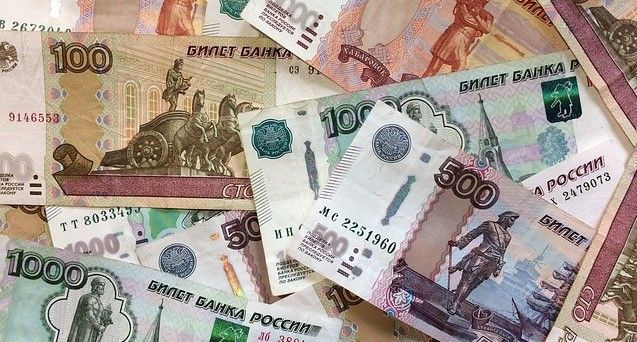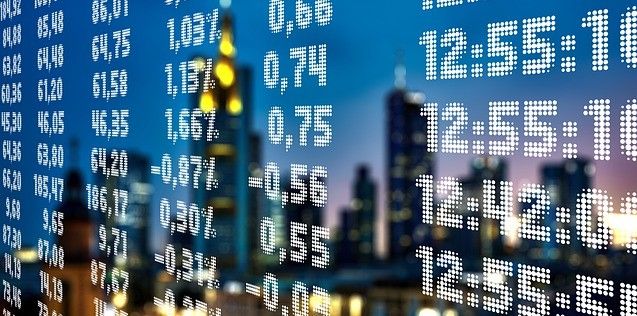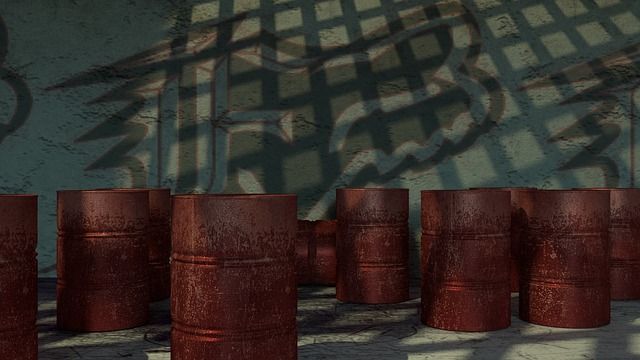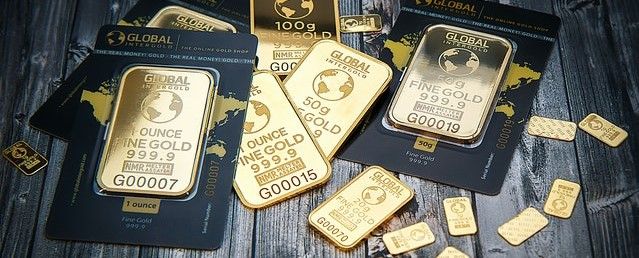Ukraine’s long and rich history has taken a sudden twist as the Russian military has begun moving across the border.
In these early days it is as yet unclear how successful the attacks will be or how long the war will last. However, one thing that is certain is that war is never good for the economy.
In this respect, Moscow is clearly losing the battle with the Russian central bank forced to buy millions of roubles to protect its value. Even then the rouble fell to an all-time low of 89.60 against the U.S. dollar and the Moscow stock exchange was forced to close as the market collapsed.

Once the rouble had stabilised at 84 to the dollar, the stock market reopened, only to immediately drop by 30%. In foreign markets the situation for Russian businesses was similar, with business analysts reporting that the, “MSCI index of shares in Russian companies traded in London and New York dropped 45%.”
Other markets also fell with London’s FTSE 100 down 3.2%, Germany’s DAX down more than 5%, the CAC 40 in France fell 4.3%, and the Italian market fell 4.8%. Early signs [at time of writing] are that the markets in America will have a similar response.

Even before the first shots in this latest assault had been fired, the economic battlelines had already been drawn over an economic cold war based on European and Ukrainian need for Russian gas. Neither side is pleased with the situation as the EU is embarrassed by its dependency on a fossil fuel imported from a dubious democracy, while Russia is forced to temper its ambitions over its need for hard currency from the gas trade.
The consequences of the outright assault by Russian forces has therefore hit wholesale gas prices hard, with the Guardian reporting that, “price of British gas for next-day delivery jumping 40% to 280p per therm.”
Oil prices have also been in shock, with the value of a barrel of Brent Crude (a benchmark price) going above $105 for the first time since 2014. While the BBC is reporting that, “The price of gold - which is considered a haven asset in times of uncertainty - jumped 3% to its highest price in more than a year.”

Looking ahead, the most obvious response from Western powers is to increase the noose around the Russian economy. President Zelensky of Ukraine calling for, “[The] building of an anti-Putin coalition. Immediate sanctions, defense, & financial support to Ukraine! Close the airspace! The world must force Russia into peace.”
This call for sanctions has already been supported by leaders in Germany, Britain, the U.S., France, and other major economies. “The sanctions hit is going to be significant, unlike the soft sanctions imposed on Tuesday and Wednesday [before the assault],” notes the investment firm Renaissance Capital. Although, the early signs are that China will not participate, allowing Vladimir Putin to turn East to keep his country trading.
Despite this, the effective interest rate on Russian government debt climbed to more than 9%, giving Putin little room to manoeuvre the country’s finances with help from foreign investors. Instead, Russia had already been steadily preparing a war chest of more than $600bn in gold and foreign currency to help it outlast its global trading exclusion and support the rouble.
Inflationary worries remain, but this is more than just a Russian problem, and has been made worse everywhere as commodity prices have risen since the pandemic and even more so now the conflict has begun.

Meanwhile, the Ukrainian government does not have anything like the Russian war chest, but instead has broad international support. This was evident with the IMF coming to the country’s rescue when its national debt commitments became unsustainable following the invasion. A $700m aid package plugging the gap alongside the more than $20bn in loans Ukraine has received since 2014.
How much more the IMF is prepared to give remains to be seen.
How the markets will react over the coming days and weeks will also be known, but both will depend on the soldiers in the field, the work of diplomats, and the wider global community at large.
For the time being, the response on day one of the Russian attack makes for grim reading. This was made clear by comments from Margarita Simonyan, the newly sanctioned head of the state funded Russia Today, who explained the assault as, “… a standard parade rehearsal, except this year we have decided to hold the parade in Kyiv.”
The world economy awaits a more thoughtful response.
Photo credit: Romi_Lado from Pixabay, Gerd Altmann, Hafis Fox, Michael Steinburg from Pexels, Karolina Grabowska, & Polina Tankilevitch